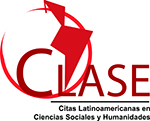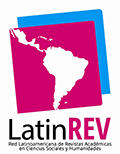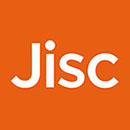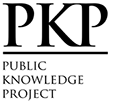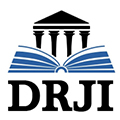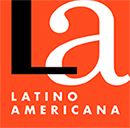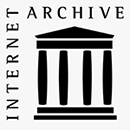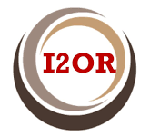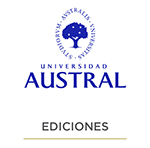Algorithmic Authorship? Considerations about the Authorship of the Works Generated by Artificial Intelligence
Abstract
Technological advances in artificial intelligence are making rethinking the current system of copyright protection. The present research work seeks to carry out an approach to the analysis on who owns the copyright works generated by artificial intelligence. It is discussed whether current legislation allows the so-called algorithmic authorship and the different scenarios involved in determining authorship are evaluated on this type of works. It is debated whether the authorship rests with the programmer, the system user or the person commissioning the work. It is concluded that there is currently no express legal solution and therefore, a regulation must be sought according to the new technological challenges based on the consensus of the different actors that make life in the world of intellectual property.
Downloads
References
Antequera Parilli, R y Gómez, G. (1999). Legislación Sobre Derechos de Autor y Derechos Conexos. Caracas: Editorial Jurídica Venezolana.
Azuaje Pirela, M. (2020). Protección jurídica de los productos de la inteligencia artificial en el sistema de propiedad intelectual. Revista Jurídica Austral, 1(1), 319-342. https://doi.org/10.26422/RJA.2020.0101.azu.
Bercovitz, R. (2007). Comentarios al art. 10 LPI. En Bercovitz, R. (Coord.), Comentarios a la Ley de Propiedad Intelectual (3ª ed., pp. 151 y ss.). Madrid: Tecnos.
Boden, M. (2004). Creativity and Artificial Intelligence. Artificial Intelligence, 103(1), 347-356.
Boyden, B. (2016). Emergent Works. Columbia Journal of Law & The Arts, 39(3), pp. 377- 394). https://journals.cdrs.columbia.edu/wp-content/uploads/sites/14/2016/06/7-39.3-Boyden.pdf.
Brandt, A. K. y Eagleman, D. (2017). The runaway species: How human creativity remakes the world. Edimburgo: Canongate Books.
Bridy, A. (2012). Coding Creativity: Copyright and the Artificially Intelligent Author. Stanford Technology Law Review, 5, 1-28. https://ssrn.com/abstract=1888622.
Brow, N. I. (2017). Artificial Authors: a Case For Copyright in Computer-Generated Works. Science and Technology Law Review, 20(1), 1-41. https://doi.org/10.7916/stlr.v20i1.4766.
Colton, S. (2008). Creativity vs the perception of creativity in computational systems. https://www.semanticscholar.org/paper/Creativity-Versus-the-Perception-of-Creativity-in-Colton/a2eab9219192b14f5019e346566668bf4986f591.
Denicola, R. (2016). Ex Machina: Copyright Protection for Computer-Generated Works. Rutgers University Law Review, 251. https://ssrn.com/abstract=3007842.
Díaz, J. (2016). Daddy’s Car: inteligencia artificial como herramienta facilitadora de los derechos de autor. Revista de la Propiedad Inmaterial, (22), 83-100.
Fernández, H. (2011). Manual de los Derechos de Autor. Buenos Aires: Editorial Heliasta.
Frankish, K. y Ramsey, W. (Eds.). (2014). The Cambridge Handbook of Artificial Intelligence. Cambridge: Cambridge University Press. https://doi.org/10.1017/CBO9781139046855.
García, T. (2016). Análisis del criterio de originalidad para la tutela de la obra en el contexto de la ley de propiedad intelectual. Anuario Jurídico y Económico Escurialense, XLIX, 251-274.
Ginsburg, J. C. (2003). The Concept of Authorship in Comparative Copyright Law. Columbia Law School. https://ssrn.com/abstract=368481.
Ginsburg, J. C. (2018). People not machines: Authorship and what it means in Bern Convention. The International Review of Intellectual Property and Competition Law, 49(2), 131-135. https://link.springer.com/article/10.1007/s40319-018-0670-x.
Glasser, D. (2001). Copyrights in Computer-Generated Works: Whom, if Anyone, Do We Reward? Duke Law & Technology Review, 1. https://scholarship.law.duke.edu/dltr/vol1/iss1/24/.
Gopinath R., Ajay R. y Sanjay C. (2019). An Introduction to Machine Learning. California: Springer. https://www.springer.com/gp/book/9783030157289.
Grimmelmann, J. (2016). Copyright for Literate Robots. Iowa Law Review, (101). 657-681.
Hertzmamm, A. (2018). Can Computers Create Art? https://arxiv.org/pdf/1801.04486.pdf.
Hobbes, T. (1989). Leviatán, la Materia forma y poder de un estado eclesiástico y civil (1a ed.). Madrid: Alianza.
Hristov, K. (2017). Artificial intelligence and the copyright dilemma. IDEA: The IP Law Review, 57(431). https://papers.ssrn.com/sol3/papers.cfm?abstract_id=2976428.
Jordanous, A. (2012). A Standardised Procedure for Evaluating Creative Systems: Computational Creativity Evaluation Based on What it is to be Creative. Cognitive Computation, 4(3). https://doi.org/10.1007/s12559-012-9156-1.
Kaminski. M. (2017). Authorship, Disrupted: AI Authors in Copyright and First Amendment Law. Uniersity of California Davis Law Review, 51, pp. 589-616. https://ssrn.com/abstract=3086912.
Kulstad, M. y Laurence, C. (2013). Leibniz’s Philosophy of Mind. The Stanford Encyclopedia of Philosophy. https://plato.stanford.edu/cgi-bin/encyclopedia/archinfo.cgi?entry=leibniz-mind.
Kurt, D. (2018). Artistic Creativity in Artificial Intelligence. https://theses.ubn.ru.nl/bitstream/handle/123456789/5631/Kurt%2C_D.E._1.pdf?sequence=1.
Lipszyc, D. (2017). Derecho de autor y derechos conexos. Bogotá: Centro Regional para el Fomento del Libro en América Latina y el Caribe (CERLALC). https://cerlalc.org/publicaciones/derecho-de-autor-y-derechos-conexos/.
López de Mántaras Badia, R. (2013). Creatividad computacional. Arbor, 189(764), a082. http://dx.doi.org/10.3989/arbor.2013.764n6005.
Navas, S. (2018). Obras generadas por algoritmos. En torno a su posible protección jurídica. Revista de Derecho Civil, 5(2), pp. 273-291.
Parlamento Europeo. (2017). Informe con recomendaciones destinadas a la Comisión sobre normas de Derecho Civil sobre Robótica. A8-0005/2017. http://www.europarl.europa.eu/doceo/document/A-8-2017-0005_ES.pdf.
Pease, A. y Colton, S. (2011). On impact and evaluation in computational creativity: a discussion of the Turing Test and an alternative proposal. En Kazakov, D. y Tsoulas, G. (Eds.), Proceedings of AISB ’11: computing and philosophy (pp. 15-22). York: Society for the Study of Artificial Intelligence and Simulation of Behaviour.
Perry, M. y Margoni, T. (2010). From Music Tracks to Google Maps: Who Owns Computer Generated Works? Computer Law and Security Review, 26, 621-629. https://ssrn.com/abstract=1647584.
Ramalho, A. (2017). Will Robots Rule the (Artistic) World? A Proposed Model for the Legal Status of Creations by Artificial Intelligence Systems. https://ssrn.com/abstract=2987757.
Real Academia Española (s.f.). Diccionario de la lengua española (23ª ed., versión 23.3 en línea). https://dle.rae.es/inteligencia.
Ríos Ruiz, W. (2001). Los sistemas de inteligencia artificial y la propiedad intelectual de las obras creadas, producidas o generadas mediante ordenador. Revista La Propiedad Inmaterial, (3), 5-14.
Ritchie, G. D. y Hanna, F. K. (1984). AM: A case study in AI methodology. Artificial Intelligence, (23), 249-268.
Ruipérez de Azcárate, C. (2012). Las Obras del Espíritu y su Originalidad. Madrid: Editorial Reus.
Saiz García, C. (2019). Las obras creadas por sistemas de inteligencia artificial y su protección por el derecho de autor. InDret, 1. https://papers.ssrn.com/sol3/papers.cfm?abstract_id=3365458.
Samuelson, P. (1985). Allocating Ownership rights in computer-generated works. University of Pittsburgh Law Review, 47. https://www.semanticscholar.org/paper/Allocating-Ownership-Rights-in-Computer-Generated-Samuelson/accb9aafa77f06f97b2255bf3bdf836046c53714.
Shlomit Yanisky-Ravid y Vélez-Hernández, L. (2018). Copyrightability of Artworks Produced by Creative Robots and Originality: The Formality-Objective Model. Minnesota Journal of Law, Science & Technology, 19(1), 1-53. https://scholarship.law.umn.edu/mjlst/vol19/iss1/11.
Sorjamaa. T. (2016). I, Author, autorship and copyright in the age of artificial intelligence. https://helda.helsinki.fi/bitstream/handle/10138/166456/sorjamaa.pdf?sequence=3&isAllowed=y.
Strokes, P. (2005). Creativity from Constraints: The Psychology of Breakthrough. Springer.
Velasco, P. (2007). Psicología y Creatividad. Una Revisión desde los autoretratos. Caracas: Fondo Editorial de humanidades de la Universidad Central de Venezuela.
Copyright (c) 2020 Luis Vásquez Leal

This work is licensed under a Creative Commons Attribution-NonCommercial-NoDerivatives 4.0 International License.
This license allows the copy, distribution, exhibition and representation of the work provided authorship is acknowledged and the work is properly quoted. Commercial use of the original work or the generation of derived works are not allowed.
The authors hereby guarantee the right to the first publication of the work to the Revista Iberoamericana de la Propiedad Intelectual.









